Yemen’s future remains unclear, with regional and international repercussions likely.
Although the impact of recent events in Yemen, driven by a brazen rise to power by northern Houthi rebels, has already been felt at the national and international level, it is yet to fully unravel. For observers inside and outside Yemen, the situation has exposed an unprecedented degree of uncertainty for the future of the country.
Yemen’s nearly 25 year old unity remains under threat; the political transition process — once hailed as a progressive model based on dialogue — has been derailed by violent clashes between political actors; the length of interim President Abdo Rabbo Mansour Hadi’s term in office has been threatened by mounting pressure from Houthi rebels; political alliances are in constant flux; militant extremists still remain a resilient force of instability; and confidence in the government by regional and international powers fades as their own influence withers at the margins.
Military advances by Houthis and the Popular Communities they created through alliances with local tribal elements, and their growing political influence, have raised a number of concerns over the future of Yemen. The local population remains uncertain over the role Houthis will play in the near-term, as their objectives remain ambiguous even after the latest agreement with President Hadi signed on January 21. The president and prime minister resigned the day after.
Statements made by the rebel group since the takeover of Sana’a, the Yemeni capital city, in late September continue to create an image of the Houthis as guardians of the 2011 popular revolution and as guarantors of security as the vacuum expands and violence spreads. Yet as their demands to end corruption in state institutions and foreign interference continue to undermine state authority, the latest agreement with the Hadi has brought to the surface their political ambitions.
Houthi demands for a larger stake in government institutions were met on January 21 as point five of the agreement aims to grant the rebels more posts in state institutions. President Hadi’s constitutional authority as an elected official, and his mandate under the Gulf Cooperation Council (GCC) sponsored initiative of November 2011, would remain highly constrained were Hadi to withdraw his resignation submitted to parliament on January 22 as Houthis strengthen their role as a center of power.
The rise of Zaydi-Shiite rebels has been linked to various conspiracies. Most prevalent are suspicions over an alliance of convenience between Houthis and former President Ali Abdullah Saleh. Cooperation between these former enemies is believed to center on common interests: the elimination of threats from Gen. Ali Muhsin, the Ahmar family and the Sunni Islamist party al-Islah. For Saleh, Houthis avenged those responsible for the conflict of 2011.
The second most common suspicion centers on collusion between Hadi and the Houthis to weaken Islah and thus remove a major obstacle to his ability to govern. Tensions between the two intensified, when Hadi began to marginalize Islah’s influence in the military and intelligence agencies.
Evidence to support the Houthi-Saleh alliance surfaced on January 21, as Al Jazeera released a voice recording of a conversation between the deposed president and prominent Houthi supporter Abu Ras. Yemeni analysts claim that evidence of the Houthi-Hadi alliance would come in the form of an agreement to extend the president’s term beyond February 2015, under the guise of a need to complete the transition process. Evidence substantiating these scenarios has been damaging to Yemen’s image and its relations with regional and international powers.
Further exacerbating the situation faced by the Yemeni public is the potential of a breakdown of all authority and the establishment of a ruling council in the form of a power-sharing agreement between Houthis and Saleh.
While the United States remains committed to supporting Hadi, Gulf monarchies, led by Saudi Arabia, are gradually withdrawing their support. In November 2014, the GCC called for a new initiative to save the political transition and put Yemen back on a track to stability. However, Saudi Arabia, Yemen’s primary financial sponsor, has since withdrawn aid in response to the Houthis’ apparent control of the state and potential security threats. Political actors have declined the GCC proposal and argue that the Peace and National Partnership Agreement (PNPA) from September 21, 2014, provides the mechanisms needed to direct implementation of the outcomes of the National Dialogue Conference that concluded in January 2014.
The passing of Saudi King Abdullah on January 23 and ascent of former Minister of Defense Crown Prince Salman to the throne may result in a more consistent Saudi policy toward Yemen, since the new king was previously in charge of the Yemen portfolio. Disputes among members of Saudi Arabia’s ruling family have been cited as a primary reason for the country’s disastrous policies toward Yemen since the popular uprising in 2011. Any immediate response to Yemen’s financial needs remains unclear.
Adding further tensions to already complicated bilateral relations, Saudi Arabia listed Houthi rebels as terrorists in a move followed by the United Arab Emirates (UAE). Two Houthi leaders, Abdul-Khaleq al-Houthi and Abdullah (Abu Ali) Yahya al-Hakem, were also sanctioned by the United Nations Security Council and then the US on November 7. The latter is exercising caution as speculation adds to fears over potential Houthi obstruction of counterterrorism efforts, specifically drone operations, even as Houthis continue to pursue leaders and loyalists of al-Qaeda in the Arabian Peninsula (AQAP) and its affiliate, Ansar al-Sharia.
Media outlets have focused on Houthi gains creating opportunities for AQAP to seize territory as Yemen implodes. Armed clashes between Houthis and AQAP have spread from al-Baydha and Ibb provinces in central Yemen to the district of Arhab, near Sana’a International Airport. The fighting included confrontations between Houthis and militias loyal to al-Islah party, who were accused by Houthis of colluding with AQAP militants.
Furthermore, the spiraling conflict in the eastern oil rich province of Mareb between Houthis and elements allied to al-Islah party have created a space for AQAP elements aiding anti-Houthi tribes. Ansar al-Sharia claimed it assisted a group of Mareb tribesmen in the capture of a military convoy with heavy weapons and tanks in early January. It remains unclear whether Houthi rebels, with their slogan “Death to America,” will continue to allow operations by the US military and CIA on Yemeni territory. Due to growing upheaval, training programs with Yemen’s military have come to a halt, as the US lacks confidence with security agencies under Houthi pressure. Yet a drone strike in Mareb province on January 26, killing three suspected AQAP operatives, clearly illustrates that Washington maintains operational capacity, even if access to real-time intelligence may be compromised.
A New Power Imbalance
To understand the current situation and the grave shifts that have occurred in Yemen’s political and security landscape, there is a need to examine the impact of the historic shift in military balance in North Yemen. Houthi rebels — named after Hussein Badr al-Din al-Houthi who died in 2004 — overran the homeland of Yemen’s long-time paramount sheikhs of Bayt al-Ahmar and imposed their order over state institutions and society. Empowered by their success, they gained a new degree of confidence to sustain the fight against their rivals in al-Islah. The Houthis’ primary aim has been to eliminate longstanding politico-religious threats to Zaydis from Muslim Brotherhood and Salafi elements. Al-Islah has subsequently been weakened, as its tribal and military centers of power were crushed.
Houthis not only dealt al-Islah a devastating blow, but they also upset the political order that temporarily served President Hadi. Prime Minister Mohammed Salem BaSundwa’s resignation on the same day that Houthis took over Sana’a in September 2014 represented the first blow to the established order set by the GCC initiative of 2011.
The second aspect was the signing of the Peace and National Partnership Agreement (PNPA) by the Houthis in a ceremony alongside Hadi and United Nations Special Envoy Jamal Benomar. The PNPA dealt what some see as a fatal blow to the GCC initiative, as it called for the dissolution of the coalition cabinet, which was composed of Saleh’s General People’s Congress (GPC) and the Joint Meeting Parties (JMP), led by al-Islah. The new PNPA governing equation, under a new prime minister to be approved by Houthis — who were not part of the GCC initiative — demanded a more technocratic composition, a difficult task under the current circumstances.
As part of negotiations, Houthis also installed a number of presidential and government advisors, mainly to monitor activities within vital state institutions. The final agreement on the position of prime minister came in mid-October 2013, when Houthis approved Khaled Bahah, who was Yemen’s envoy to the UN at the time, to head the new cabinet. The new government was sworn in on November 9, 2013, as Houthis rejected a number of ministers. This ruling equation was once again renegotiated on January 21, 2015, granting Houthis and southern secessionists an expanded share in government. At the time of writing, negotiations led by UN Special Envoy Benomar were ongoing to have Hadi withdraw his resignation, just as four names were proposed to succeed the president; among them is the speaker of parliament and Saleh loyalist, Yahya al-Ra’i.
While recent events in Sana’a may appear to grant Houthis an upper hand over other political actors, the situation on the ground indicates no individual is capable of commanding significant authority over others and, therefore, real power cannot yet emerge to impose order among warring parties.
After Hadi’s Resignation
The Houthis’ rise to prominence was not a product of their overwhelming military capacity over the state or individual actors. It represents a major consequence of the gradual disintegration of Yemen’s national armed forces, weak command and control and the weakness of traditional centers of power. Bayt al-Ahmar, Ali Muhsin, al-Islah and even former President Saleh were indeed weakened over the past three years, as President Hadi managed to distance this old ruling elite from state institutions and former pillars of the regime. Today, there is an imbalance in political relations, primarily as economic resources that maintained alliances were wrestled from traditional centers of power.
Professors Sheila Carapico and Stacey Philbrick recently described the situation as a process wherein the regime is being rewritten as Houthis hope “to influence Yemen’s future regime.” This is in reference to the fact that the 2011 uprising did not cause the fall of the regime, while the GCC initiative merely rearranged the distribution of power among the elite. Now, after the resignation of President Hadi and Prime Minister Bahah and yet another push for southern secession, the nature of the political system and territorial integrity of Yemen remains uncertain.
Already before the latest fighting in the capital from January 19 onward, tensions surfaced and a new war of words erupted between Saleh and the Houthis, which some indicate is a pure smoke screen as their limited alliance remains. However, Houthi gains and renewed strength also pose a threat to Saleh’s long-term plans to return to power. The former president perceives Houthi advances against al-Islah, Ali Muhsin and Bayt al-Ahmar as a sweet revenge for their betrayal against him and support of the 2011 uprising.
For over three years now, final solutions to Yemen’s political crisis have been relegated to backroom negotiations as the public fixated its hopes on a dialogue process with weak foundations. The consequences of unrealistic expectations to shape Yemen’s future, as the pillars of the old regime remained, have surfaced in the form of a major power shift — an imbalance forcibly produced by a non-state actor from within rather than imposed by regional powers or international consultants.
This shift in the balance of power is far from set in stone, and Houthis remain constrained in pursuit of decisively taking control of the state. Such doubts on their capacity to directly rule surfaced when a Houthi statement refused to accept President Hadi’s resignation on January 22. Former President Saleh, who was recently sanctioned by the UN Security Council for obstructing the political process, remains bent on returning to power. It is not in his interest, or of his son Ahmed Saleh’s, to see Houthis fully take over power or decimate state institutions.
Another key aspect is the Houthis’ disapproval of the current draft constitution, which was cited by some observers as an important reason for the military offensive in Sana’a. Before his resignation, Hadi agreed that the draft constitution could be amended. The Houthis had previously rejected the proposal to establish a federal system with six administrative regions — a plan supported by the international community. In addition, there is concern among ordinary Yemenis that Houthis will slowly take over the fragmented and demoralized security forces from within.
If Houthis are to play an active role in government, beyond that of monitors, the rebel group must first become a constitutional actor — meaning they would need to establish a political party. It is a path that remains uncertain, as Houthi leader Abdulmalek al-Houthi appeared on television on December 15 and demanded that the government hands over control of the Auditing and Monitoring Agencies and cease work on the FY 2015 budget or face escalation by his rebels. His speech gave no indication that Houthis are moving toward a constitutional role, but the January 21 agreement may lead to such a situation. This issue was highlighted by Ali al-Bukhaiti on January 23 in his letter of resignation from the Houthi’s Ansar Allah Political Bureau in Sana’a. As a prominent figure in Ansar Allah, Bukhaiti indicated that Abdulmalek al-Houthi must realize that moves from the mountains of Amran to Sana’a must involve bold changes in the group’s behavior.
It must also be noted that even as Houthis place mounting pressure on Hadi, Abdulmalek al-Houthi has continued referring to him as Yemen’s president. Yet even as speculation grows over Houthi links to financial support from Iran, the rebel group remains incapable of contributing to solutions for the economic crisis or the escalating conflict with southern secessionists. Abdulmalek Al-Houthi made clear that the rebels will protect Yemen’s unity, but secessionists in the port city of Aden remain on high alert as Houthis begin to increase their presence there.
Fair Observer is a nonprofit organization dedicated to informing and educating global citizens about the critical issues of our time. Please donate to keep us going.
The views expressed in this article are the author’s own and do not necessarily reflect Fair Observer’s editorial policy.
Photo Credit: Anton_Ivanov / Dmitry Chulov / Shutterstock.com / Glenn Fawcett / White House / Richard Messenger / Flickr
Support Fair Observer
We rely on your support for our independence, diversity and quality.
For more than 10 years, Fair Observer has been free, fair and independent. No billionaire owns us, no advertisers control us. We are a reader-supported nonprofit. Unlike many other publications, we keep our content free for readers regardless of where they live or whether they can afford to pay. We have no paywalls and no ads.
In the post-truth era of fake news, echo chambers and filter bubbles, we publish a plurality of perspectives from around the world. Anyone can publish with us, but everyone goes through a rigorous editorial process. So, you get fact-checked, well-reasoned content instead of noise.
We publish 2,500+ voices from 90+ countries. We also conduct education and training programs
on subjects ranging from digital media and journalism to writing and critical thinking. This
doesn’t come cheap. Servers, editors, trainers and web developers cost
money.
Please consider supporting us on a regular basis as a recurring donor or a
sustaining member.
Will you support FO’s journalism?
We rely on your support for our independence, diversity and quality.




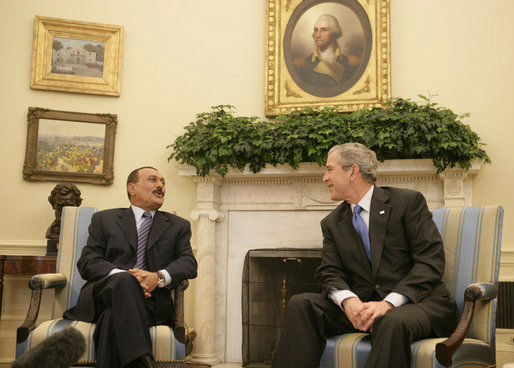

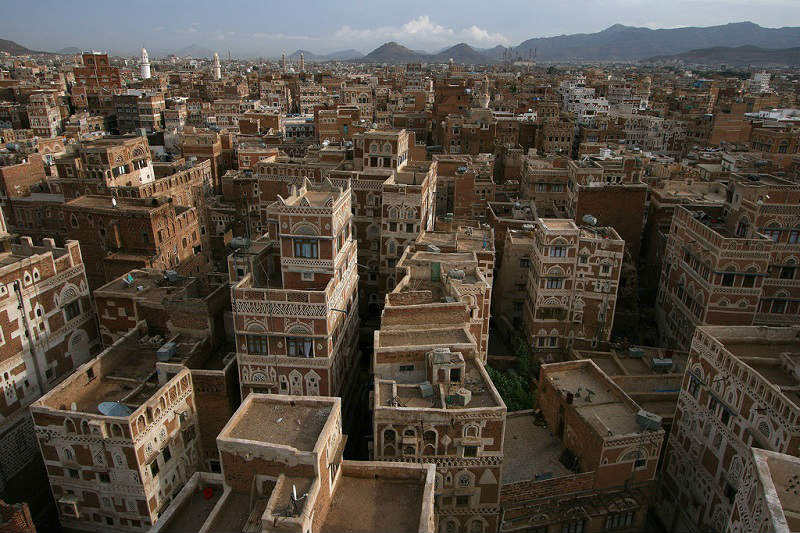

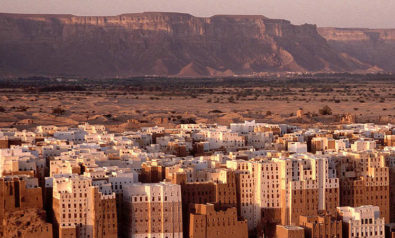
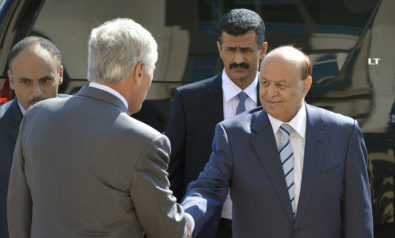
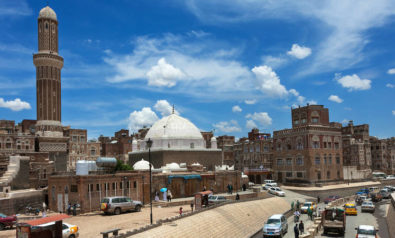
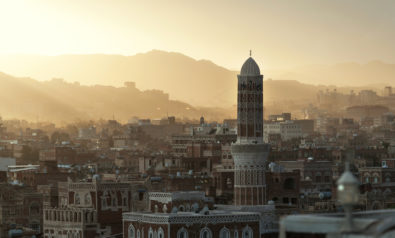
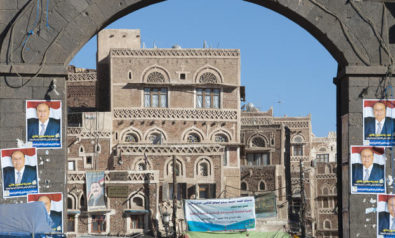
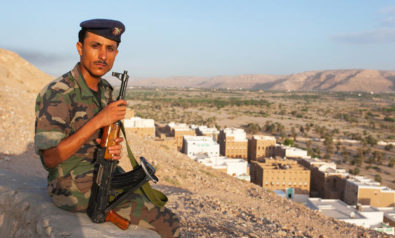

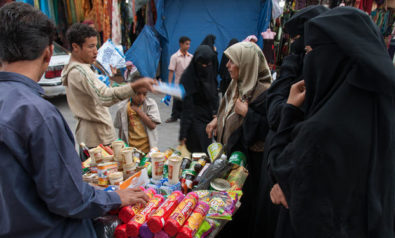
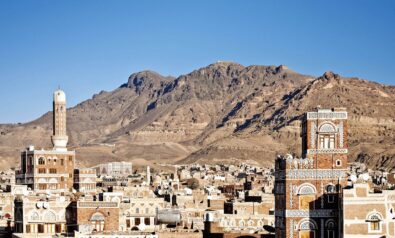
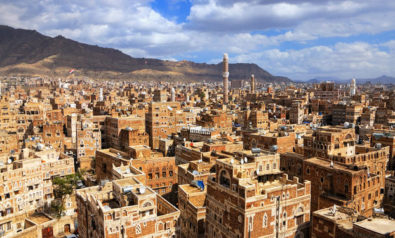

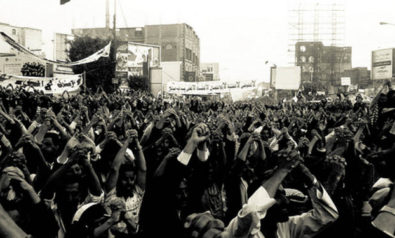

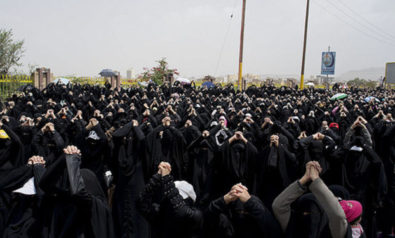
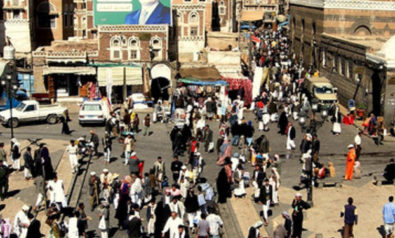

Comment